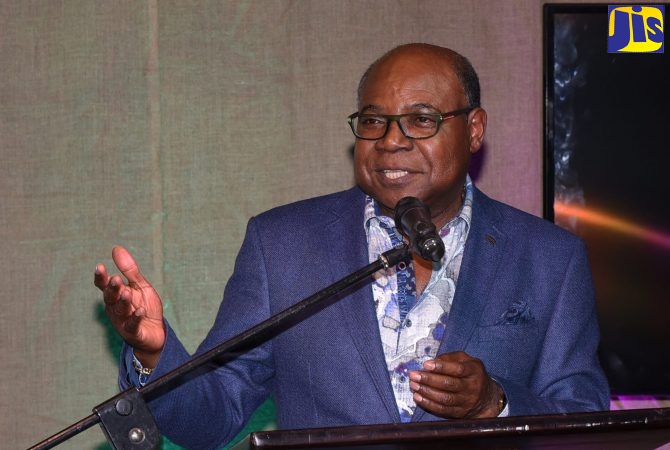"No revolution without objective forces" says Kenny D Anthony on Fidel Castro's death anniversary
Parliament representative for Vieux Fort and Former Prime Minister of St Lucia Kenny D. Anthony released a statement on the death anniversary of Fidel Castro.

Parliament representative for Vieux Fort and Former Prime Minister of St Lucia Kenny D. Anthony released a statement on the death anniversary of Fidel Castro, former leader of Cuba.
Anthony said that there can be no revolution without the dialectical interaction of subjective and objective forces. He said objective conditions for a revolution may exist but a revolution cannot be born without a revolutionary leader supported by a revolutionary vanguard.
"It has always seen in a critical subjective condition-a revolutionary vanguard led by a revolutionary leader, and I contend that a true leader must be revolutionary."He said the revolutionary leader must be the embodiment of the values of the revolution; a visionary with an iron will and temperament; a leader who can summon, mould and motivate the collective will and consciousness, "who understands that sacrifice is at the heart of the revolutionary process; who can inspire, share the pain of his or her people, but remain ideologically steadfast in the commitment to liberate them from their human condition."
Anthony said revolutionary leader must have unmatched courage for no revolution survives without adversity.
Furthermore, he stated that Fidel Castro Ruz was all of this and so much more. In my eyes, he will remain the greatest, the most formidable revolutionary leader of our generation and said there is none who can take his place in the pantheon of revolutionary leaders in our times.
He noted that history will have to search hard for anyone who could replace him. Authentic revolutionary leaders do not die. They continue to live through their ideas, their thoughts and their example. Fidel is alive in our minds today, in our thinking, actions and programmes. We are his chosen children charged to carry into the future the mission to save our humanity from itself, alter the course of our civilization and bring unity, hope and redemption to our hemisphere.If Fidel was alive to hear me utter the words that I have just spoken, he would admonish me. He would probably say to me, do not speak about me. Without the revolution, I am nothing. Instead, speak about the revolution, its triumphs, failures and successes. Speak about the revolution, its triumphs, failures and successes. Speak about how the Cuban revolution changed the world, altered the human condition, helped to liberate oppressed peoples from the clutches of colonialism and the evils of apartheid and bring freedom and equality to those who had been denied.
Speak about the transformative changes brought about by the Cuban people in their lives and in their encounters with the world.
Speak too about how the revolution built bridges in our hemisphere, brought hope, inspired understanding and co-operation and eliminated fear and distrust of each other. Speak about Hugo Chavez; how he gave Latin America and the Caribbean new hope and a new direction in hemispheric relations.
Anthony stated that he is making the remarks as a Former Prime Minister of a Caribbean country, Saint Lucia, for some fourteen years, who had a personal relationship with Fidel for twenty years.
Many to this day have been mystified by the unique friendship which Cuba shared with the Commonwealth Caribbean States, the collective also known as “CARICOM”. I mention this friendship to emphasize the unique qualities of Fidel and the Cuban Revolution.
Fidel never forgot that it was the independent states of Jamaica, Trinidad and Tobago, Barbados and Guyana that began the process to dismantle the diplomatic isolation of Cuba in the hemisphere.
These states did so in open defiance of the United States. They went where other feared to tread. In doing so, they reaffirmed that the Caribbean region constituted on family, shared by history, culture, geography and fierce and undying passion for independence and liberation from the savagery of slavery, colonialism and imperialism.
On the one hand, here was Cuba, a socialist state, defined by its ideology and on the other, Caribbean States, all inheritors of the trappings of Westminster politics and conventions replete with its bourgeois ideology.
Author Profile
Latest
- Trinidad and Tobago: Couple gunned down at Children’s Park i...
-
Guyana: Teen arrested for alleged cannabis smuggling at New... -
Jamaica: Three men charged over fatal shooting of teacher in... -
West Indies women’s cricket team return to Grenada after a d... -
Six major cruise ships simultaneously dock at Port Zante








